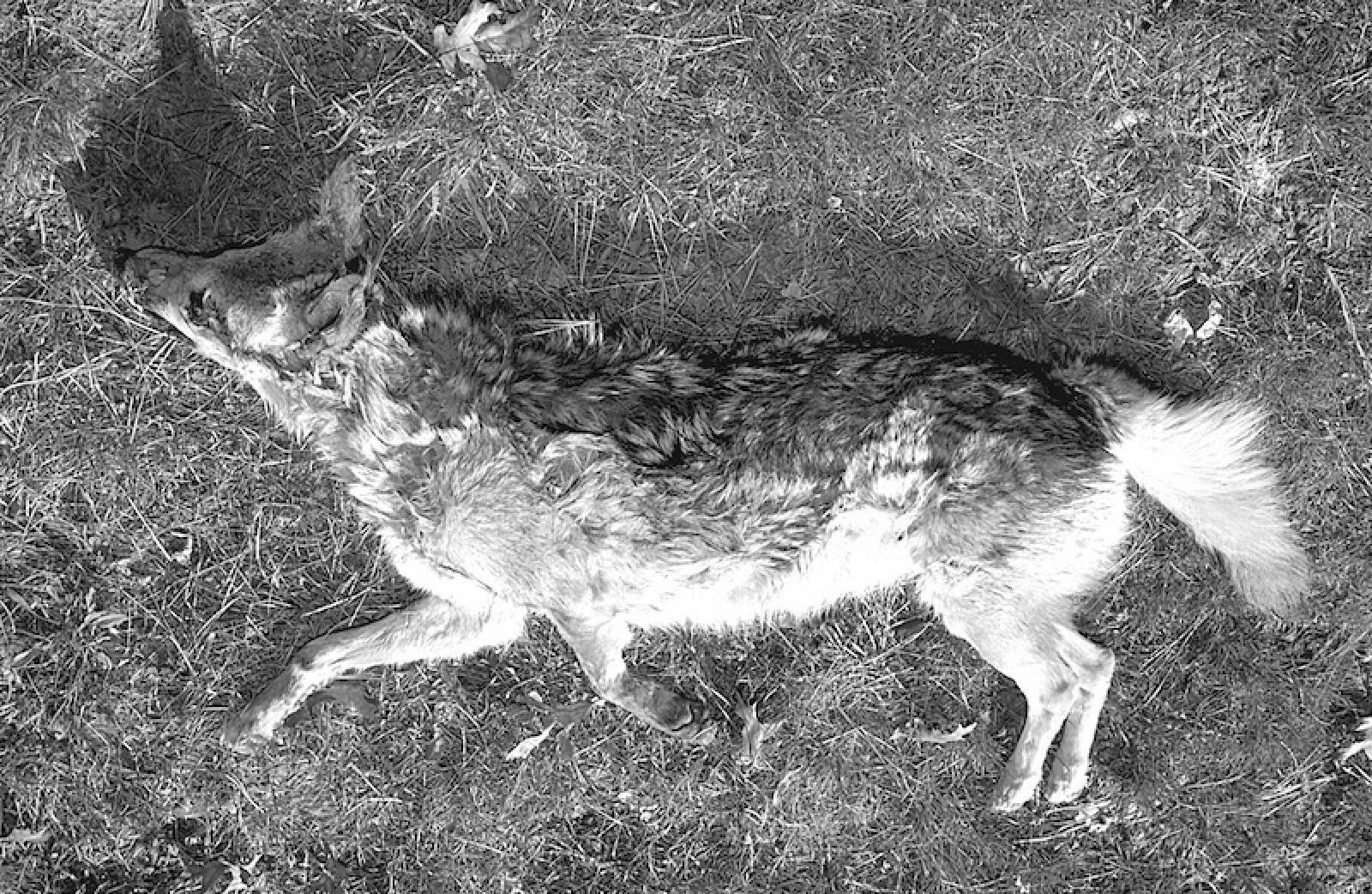A coyote, whose carcass was found on the North Shore last weekend, may have swum to the Island from the Elizabeth Islands.
That’s what Augustus Ben David, director of the Felix Neck Wildlife Sanctuary, is speculating.
The 40-pound, fully mature female adult coyote was discovered Sunday high up on the wrack line at Great Rock Bight in Chilmark by Tim Duys of Vineyard Haven. He delivered the carcass Tuesday to Felix Neck for examination.
Mr. Ben David said this is the first time any coyote has been spotted on the Island, either dead or alive.
In the last decade coyotes have become part of the wildlife community on the Elizabeth Islands and on the Cape. They’ve been spotted in Woods Hole.
Mr. Ben David said that there is no way of determining the exact origin of the coyote discovered on the Vineyard shoreline.
“It might have been chased into the water by a hunter,” Mr. Ben David said. “Most likely it came from the Elizabeth Islands.”
Possibly, it was shot or discarded at sea, he added.
High winds over the last week from the northwest likely played a part in the animal’s arrival here. “We’ve been having some extreme high tides and 50-mile-per-hour northwest winds,” Mr. Ben David said.
The creature doesn’t appear to have been dead for many days, he said.
Coyotes are opportunistic animals. Like dogs they will eat just about anything and that includes vegetables, Mr. Ben David said. Mottled black, gray and brown with bushy tails, Coyotes are aggressive and have been known to hunt small wild and domestic animals including dogs and cats.
“They feed on everything: rats, birds, bird nests, blueberries, vegetables, fruits and berries. They are one of the most adaptable animals. They tried to get rid of them in the west and couldn’t,” Mr. Ben David said.
“The jury is still out on whether they are entirely bad on the ecosystem,” he continued.
The find will be reported to Tom French, assistant director of the state Division of Fisheries and Wildlife, who runs The Natural Heritage & Endangered Species Program.
Mr. Ben David asked that anyone who has seen what they believe to be a coyote on the Island to report sightings to him at the Massachusetts Audubon Society Sanctuary.
Mr. Ben David said he relies on the expertise of other Island naturalists such as Susan Whiting and Vern Laux to verify a sighting.






Comments
Comment policy »